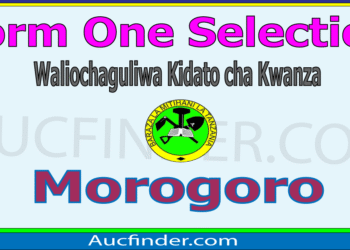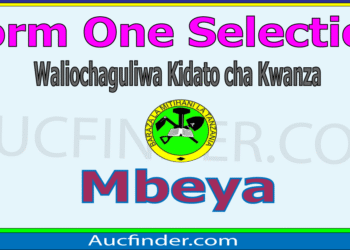The Bachelor of Medicine degree programme takes 5 years to complete. Students who graduate with an Bachelor of Medicine and complete one year’s internship are allowed by the Medical Council of Tanganyika to practice as a medical doctor.
Taking into consideration that Medicine is a caring humanitarian profession, the MD curriculum has been designed in such manner that a graduate physician would demonstrate problem-solving capacity (professional reasoning), associated with clearly identifiable professional attitudes, combined with a range of psycho-motor abilities (professional skills) and carry with him/her an integrated information base (professional knowledge).
The curriculum for the Doctor of Medicine programme produces competent doctors with the requisite attitudes, knowledge and skills to enter the health care field with confidence. The programme offers a comprehensive approach to health care that is balanced between preventive, promotive, curative and rehabilitative health care, in a Primary Health Care or community setting.
In addition, the Bachelor of Medicine degree programme promotes communication skills, teamwork, professional values and competent clinical practice, in the context of the Primary, Secondary and Tertiary Health Care systems. Students are equipped with critical thinking and lifelong learning skills.
Upon successful completion of the five years of training, the graduate is expected to undertake an additional sixth year of apprenticeship in an approved institution before being allowed to practice independently.
During the student’s internship , the Ministry of Health and Social Welfare will employ the student, and the student will receive a salary.
Once registered by the Medical Council of Tanganyika upon completion of your internship and community service, successful graduates may set up their own practice as a medical doctor, or may choose to work in a hospital, clinic, or other institution where a doctor’s services are required.
Graduates may also choose to become a specialist, in which case the student will embark on postgraduate studies (and register for the Master of Medicine or “MMed” degree) in the field of their choice.
Some graduates who have excelled academically may choose to pursue an academic career, involving teaching and research in addition to clinical practice
Doctor of Medicine (MD/MBBS) Admission requirements in Tanzania
Direct Entry
All applicants to Bsc in Doctor of Medicine must have three principal passes in Physics, Chemistry, and Biology with minimum entry of 8 points, whereby one must have at least C grade in Chemistry and Biology and at least D grade in Physics
Equivalent Qualifications
Certificate of Secondary Education Examination (CSEE) with at least five (5) passes including two credit passes in Chemistry and Biology and a D grade in Physics PLUS appropriate Diploma or Advanced Diploma with an average of “B+’’ or GPA of 3.5 OR BSc (lower second) majoring in Physics/Mathematics, Chemistry, Biology /Zoology.









Discussion about this post